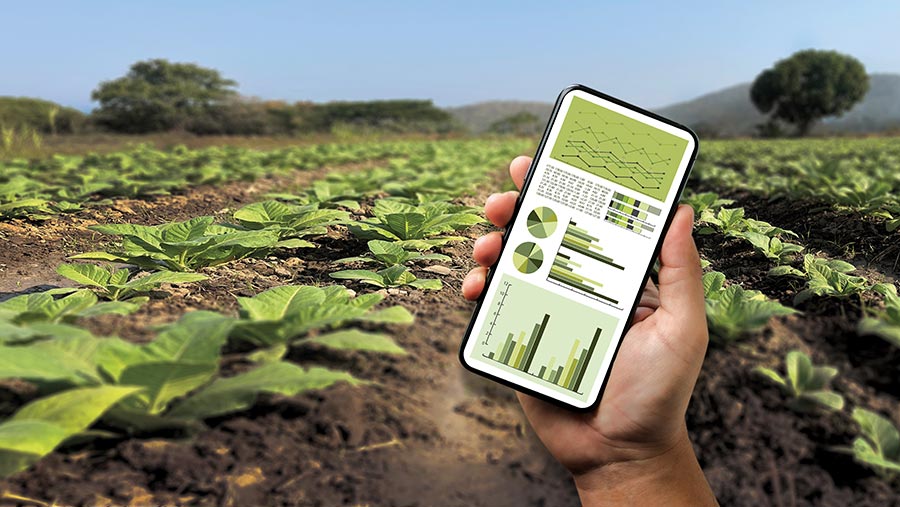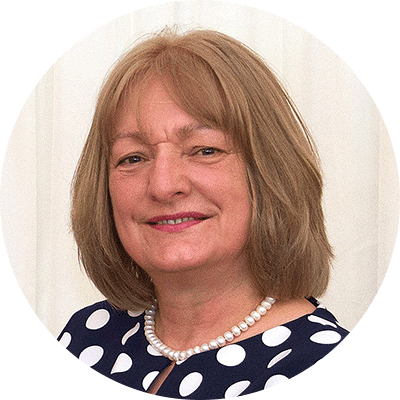Opinion: Better governance key to make the most of farm data
 © Onephoto/Adobe Stock
© Onephoto/Adobe Stock Trust… something that is difficult to gain, but easy to lose. And it is the biggest issue holding back digital agriculture in the UK today.
There is a veritable cornucopia of opportunity when it comes to data-inspired decisions, such as what to grow on your farm, how to grow it, what inputs to use, return on investments, environmental concerns and benefits, and carbon capture.
About the author

Prof Tina Barsby is chairwoman of the British Farm Data Council – a new group of industry leaders that aims to improve data governance in agriculture. Here she argues for more trust and higher standards in data use.
Yet uptake on farm remains stubbornly low.
For so many farmers, potentially helpful digital tools are ignored because of a lack of trust in how their farm data is taken, stored, profited from, and potentially shared with others.
That is why we have decided to do something about data governance.
Having discussed it with people from across the food supply chain, it is clear that, while people have different slants on what “data governance” actually means, there is broad agreement on the responsibility to understand where the data comes from, how it is collected, where it is stored, and what organisations can and cannot do with it without the express permission of the data owner.
The industry absolutely recognises the importance of data governance, but there is a general unease that things are not being done properly, that there are few or no safeguards, and that no one is sure “what good looks like”.
That unease is felt from top to bottom, whatever the size of the operation, and while there is a belief that more time is being spent on the subject than ever before, especially when it comes to the General Data Protection Regulation (GDPR), everyone accepts that there is much more to do in non-GDPR areas.
The collecting and sharing of commercial data is widely practiced and yet there is no consistent view on how that data can be used.
The biggest concerns about the current situation revolve around trust, and what constitutes an appropriate standard of data governance.
If there was an accepted standard, it would take some of the guesswork and angst out of the process, installing trust in a system where farmers feel less disenfranchised from the process, and those further along the food chain feel less exposed to the damaging risk of doing something wrong.
And so, the British Farm Data Council was born, with a view to survey what work in this area has already been carried out, to start to understand that elusive “what good looks like”, and then to draw up a potential “gold standard” those organisations and companies that are developing applications using farm data could subscribe to.
Most of our members are not data experts, but all interact with data and are aware of the role it has in the future of farming.
More importantly, they are experts in putting farmers and growers at the centre of their thinking – something I feel is important.
If we can increase the level of trust to the point where more farmers are prepared to take another look at how digital tools can help their farms and farm business, and help us to define what the public good of sustainable farming looks like, the digital revolution in agriculture here in the UK can take off to the benefit of all involved.
